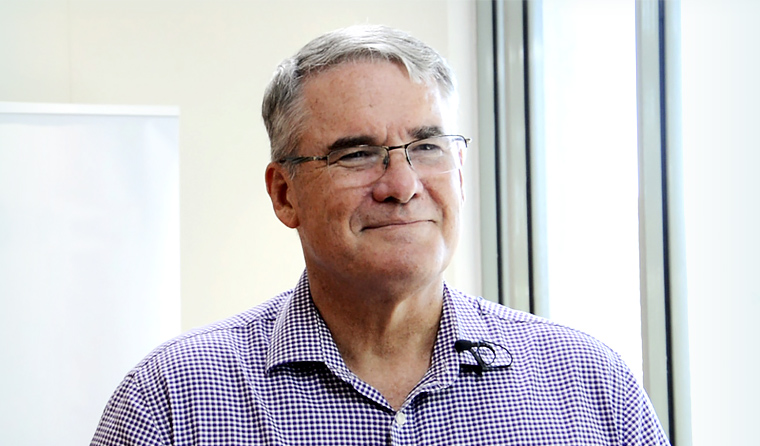News
Australian patients rank ‘bad luck’ as third leading cause of cancer
Despite clear evidence of cancer risk factors, many patients attribute its development to fate.
 Bad luck was a commonly cited factor when Australian cancer patients where asked what contributed to their disease.
Bad luck was a commonly cited factor when Australian cancer patients where asked what contributed to their disease.
Bad luck.
Not generally considered a health risk factor, but there it is – the third leading cause of cancer.
At least that’s what many Australian cancer patients believe.
New research published in the journal Cancer Control compared the perceptions of 585 cancer patients in Australia and Vietnam, analysing differences across 25 possible beliefs about what may have caused their cancer.
Almost half of Australian patients listed ‘getting older’ as the main cause, with ‘family history or genes’ taking out the second spot, and ‘bad luck’ coming in third.
Interestingly, smoking came in as the seventh most likely cause, while alcohol was listed as number 12.
Other lifestyle issues that have been linked to cancer also ranked poorly among Australians, with poor diet coming in at number 11, overweight number 13, and lack of exercise at number 17.
Meanwhile, most Vietnamese patients cited ‘poor diet’ as the main contributing cause of their cancer, with ‘air pollution’ as the second leading cause, and ‘pesticides’ number three.
One of the study’s lead researchers, Dr Alix Hall, said a substantial proportion of both Australian (27%) and Vietnamese (47%) patients held fatalistic views about the possible causes of their cancer.
‘In the Australian sample, “bad luck” was ranked third and in the Vietnamese sample it was ranked fifth,’ Dr Hall said.
‘This is concerning because it suggests they believe they have little control over their health.
‘That may affect their willingness to change their behaviour when it comes to diet and lifestyle, and influence their decisions relating to treatment and/or care.’
Dr Evan Ackermann, GP and immediate past Chair of the RACGP Expert Committee – Quality Care, agrees. He told newsGP these findings show how important it is for GPs to continue providing preventive health advice.
‘It’s often the case that we as GPs educate patients on an ongoing basis for some time, but the impetus to change and comply varies with each patient,’ he said.
‘The old “readiness to change” cycle.’
While it is important to continue educating patients in such a manner, Dr Ackermann also recommends devoting one annual consultation to preventive health issues.
‘I routinely do it on a patient’s first presentation of the year,’ he explained. ‘My patients expect it.’

‘It’s a big concern’: Dr Ackermann on how smoking is downplayed as a cause for cancer.
During these appointments, Dr Ackermann checks in on factors such as a patient’s weight, alcohol intake, smoking and level of exercise.
‘Do not be put off if a patient doesn’t change, just go on the journey with them. It surprises you what they do eventually,’ he said.
In terms of the study’s other findings, Dr Ackermann was not surprised to see ‘fate’ or ‘bad luck’ ranking highly in beliefs about cancer development.
‘I think “fate” originates from the other medical observation regarding cancer, in that “nice” people get cancer, too,’ he said.
‘Often these are well-known, likeable people without risk factors, without family history.
‘Scientifically it’s the statistical point anomaly.’
Though preventive measures may help reduce the risk factors for certain cancers, the Cancer Council says it is important to note that not all cancers are associated with risk factors. Cancer can sometimes develop without any specific cause.
While not surprised by these findings, Dr Ackermann remained concerned about people’s response to lifestyle issues and their contribution to cancer.
‘The biggest concern for me is how smoking is slowly being downplayed as less problematic,’ he said.
‘It seems smoking is becoming more frequent on films and it seems socially acceptable with vaping, too – despite lack of conclusive proof regarding safety or effects.
‘It’s a big concern.’
According to the Cancer Council, one in nine cancers and one in five cancer deaths are due to smoking.
Dr Ackermann believes the new research published in Cancer Control also shows that myths regarding non-carcinogenic substances and cancer risks are still pervasive.
For example, the patients surveyed ranked the use of electronic devices such as mobile phones and microwave ovens as the 19th leading cause of cancer, while injury or physical trauma – which the Cancer Council asserts is not linked to the disease – came in at number 24.
Professor David Roder is the Research Chair of Cancer Epidemiology and Population Health at the University of South Australia. He also noted that this research shows there are many misconceptions about what causes cancer.
‘Unfortunately, people’s understanding of many cancer-related risk factors is modest to low,’ he said.
‘People’s beliefs about what may have caused their cancer are complex and likely to be impacted by multiple factors, including cultural beliefs.’
When it comes to analysing these results, Dr Ackermann said it is imperative to keep in mind the people surveyed for this research were cancer patients themselves.
‘In the end, these are people who are diagnosed with cancer who were asked what caused their cancer,’ he said.
‘Each person would have their own personal views affected by their guilts or stresses in life, rather than a scientific basis.
‘I think this list reflects that.’
cancer preventive health risk factors smoking
newsGP weekly poll
Health practitioners found guilty of sexual misconduct will soon have the finding permanently recorded on their public register record. Do you support this change?